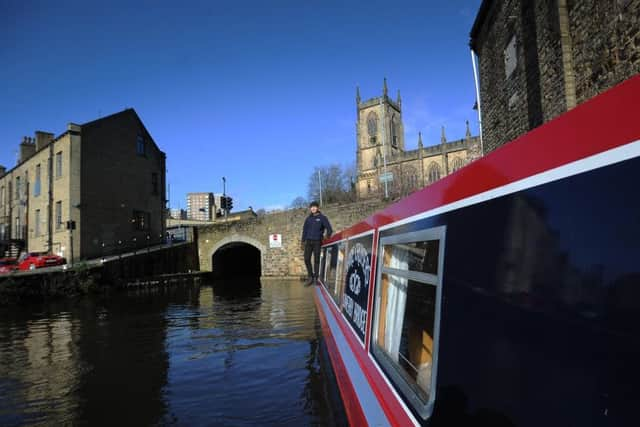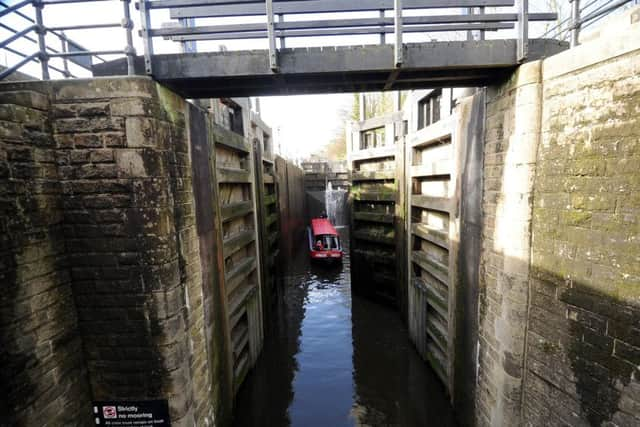Volunteer keepers sought for Britain’s deepest canal lock
Built in 1996 as part of a major restoration of the Rochdale Canal in Sowerby Bridge near Halifax, the lock is so deep that it does the work of two, an important function that is necessary so that visiting boats can reach a tunnel with minimum fuss and then pass along the canal beneath a road.
Its mighty scale and close proximity to the tunnel however means that members of the public are not allowed to operate the lock’s mechanisms themselves. Instead, the task falls to a specially designated team of lock keepers with the process taking about 20 minutes.
Advertisement
Hide AdAdvertisement
Hide AdA voluntary position, national waterways charity, the Canal & River Trust, is looking for more people to sign up so that the lock can continue to function for years to come amid the soaring popularity of Britain’s canals.


Becca Dent, the charity’s volunteer co-ordinator, said: “We’re looking for over a dozen volunteer lock keepers to help bring Britain’s deepest lock to life for everyone who visits.
“Often referred to as the ‘face of the canals’, volunteer lock keepers are a vital and iconic role within our charity. There’s no other role like it.
“You get to be by the water, which in itself is amazing, and you’re surrounded by happy people to chat to.
Advertisement
Hide AdAdvertisement
Hide Ad“Lots of our volunteers tell us they feel more relaxed by the water.”


Lock keepers have worked on Britain’s canals for hundreds of years, although the role has changed over time.
The modern lock keeper helps to look after the nation’s waterways, assist boaters on their journeys, welcome visitors, provide information and advice to visitors on the towpath, while also helping to maintain the locks themselves.
Last year, more than 1,000 people volunteered for the role with the Canal & River Trust.
Advertisement
Hide AdAdvertisement
Hide AdRight now, boat companies are preparing for the start of the tourism season, as Nigel Stevens, of Sowerby Bridge-based Shire Cruisers, explained.
“The strikingly beautiful Yorkshire side of the Rochdale Canal offers some of the best scenery in the North and with spring around the corner we’re busy preparing to welcome boaters and holiday makers,” he said, and added that lock keepers are an important part of the visitor experience.
“We attract visitors from all over the world and they love meeting the Canal & River Trust’s team of volunteers. We appreciate their support and would love to see even more people helping out.”
Four volunteers currently assist with duties at Tuel Lane Lock. The trust asks for lock keepers to commit to performing the role on one day per week, although this could comprise of two mornings, for example.
Advertisement
Hide AdAdvertisement
Hide AdALL PLEASURE ON THE WATER
The importance of lock keepers is demonstrated by the rising popularity of Britain’s canals.
Once serving industry, it is now for leisure that boaters take to the water.
Becca Dent, of the Canal & River Trust, said: “I’m told that there are more boats on the water now than in the days when the canals were used for what they were built for.”
Some 300,000 boats with engines are currently registered on Britain’s canals.